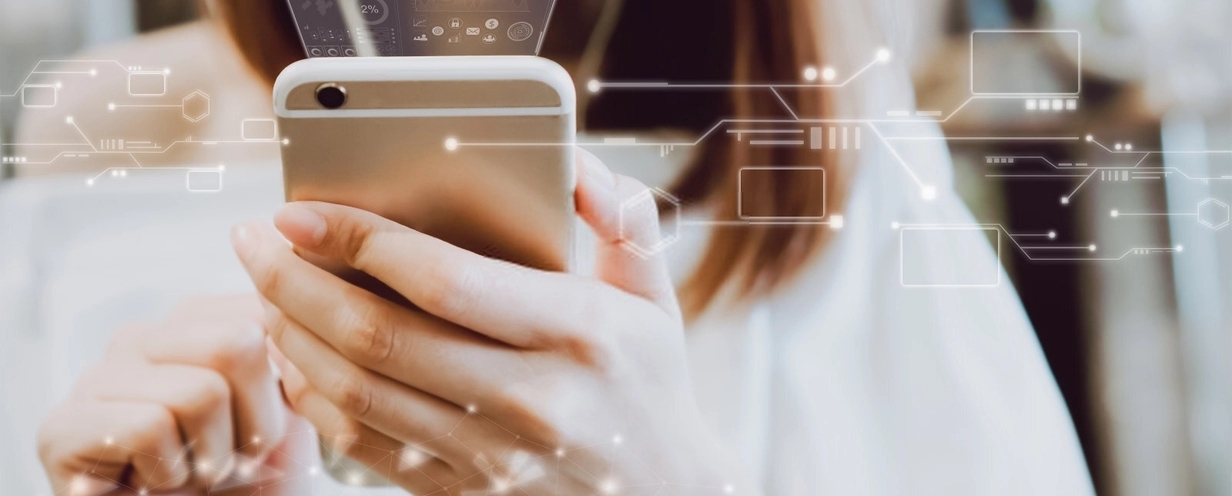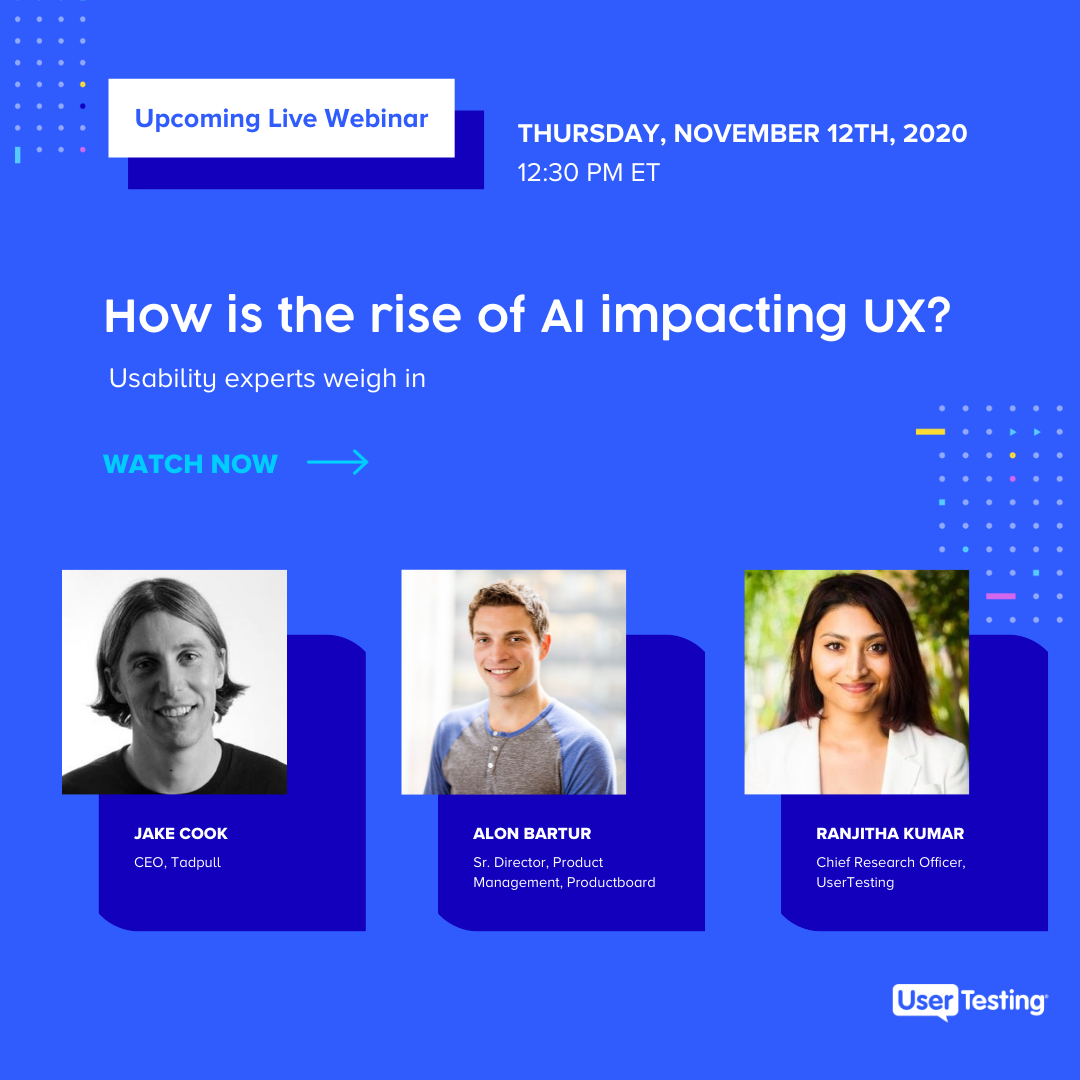
How AI will influence UX in the next five years: 3 usability experts weigh in

Usability is about making the world an easier place for everybody to live. And in honor of this year’s World Usability Day focused around human-centered AI, we asked three experts to share their thoughts on how artificial intelligence (AI) will influence user experience (UX) in the next five years.
What the experts have to say:

Jake Cook, CEO, Tadpull
“Regardless of the industry, users expect companies to deliver ever more remarkable digital experiences that anticipate their needs and present intuitive solutions without being obtrusive—whether that be on screen or in emerging mediums like voice or augmented reality (AR).
Automating these experiences with any sort of reasonable accuracy requires a significant amount of clean data to train algorithms against. Experience leaders of the future will have started building these datasets yesterday and see this is a key asset for building customer loyalty.
AI can start to be applied by picking low-hanging fruit to test ideas. Predicting intent to solve problems can be done in small incremental UX steps. As the data compounds the results will get more insightful, to the point that the user won’t even realize the robots are doing the heavy lifting and they can simply immerse themselves fully in the experience at hand.”

Alon Bartur, Senior Director, Product Management, Productboard
“Improvements to machine learning (ML) over the next five years will lead to great applicability across a number of domains and modalities. Paired with better, and more accessible tooling, this means that it will be much easier for product teams across a range of industries and products to leverage ML to help solve problems their users and customers face.
UX will play an important role, finding ways to bring humans into the loop to complement the strengths and fill in the weaknesses of machine intelligence. The products that win will foster real collaboration between system and user.”

Ranjitha Kumar, Chief Research Scientist, UserTesting
“I think about this in two ways. First, we can leverage AI to optimize UX. Platforms like UserTesting make it easy to collect big repositories of user experience data. Now imagine a world where we can train predictive models on top of that data to identify usability issues, or even auto-generate better design variations.
Second, AI enables new kinds of user experiences which we’re just starting to understand. How should a self-driving car interact with its occupants, or with other drivers on the road? What’s the right way for a conversational chatbot to help a customer with a support issue? There are deep technical and design challenges around how to best map high-level user needs to low-level modeling decisions; balance automation and augmentation; and create virtuous feedback loops that jointly optimize user experience and machine learning performance.”
In this Article






